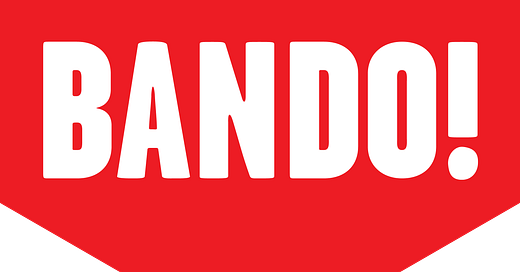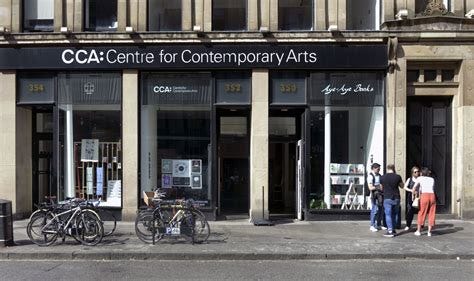Storytelling, Bilingualism and Language Survival
How language building is much harder than language erosion (but it can still be done!)
Yesterday I got the letter from Companies House confirming that my new production company BANDO! is now a real, live constituted body and, most scary of all, I am in charge! I’m working with a dedicated and talented team to take care of the production, finances touring and marketing and am assembling a board to keep the project on track.
I have been a storyteller for thirty years and, in that time, I’ve worked solo in the UK and many other countries and have collaborated with the Derbyshire based Adverse Camber productions company on a number of creative and touring projects.
I am based in Pontypridd in the post-industrial south Wales valleys and the new company is focussing on bilingualism, accessibility and creative innovation.
Eeva-Maria Mutka, dancer Michael Harvey storyteller and Stacey Blythe musician
I’m aware how much email we all get and I’m loath to overload you with the different things I’m doing so here are some options….
Option 1. If you are new to my substack you can click one of the substack sign-up buttons like this one…
Option 2. If you’ve already subscribed you can stick with your Substack Creative Practice subscription which focuses on practical creativity, in which case, do nothing and everything will carry on as normal.
And/or Go skinny and only get updates about my storytelling and creativity training offers from the Quiet Room.
And/or Sign-up for info from Bando (my new company - see above). Check out the webpage to see if it’s a fit for you. All our mailouts from Bando will be bilingual (Cymraeg/Saesneg Welsh/English)
Our first touring show Y Llyn has been in development for a very long time - over twelve years, in fact. The seed was sown when I attended a Body Earth training event led by Catherine McHose and Andrea Olsen from the US at the delightful and remote creative retreat at Penpynfarch in west Wales. Amongst the participants was the director of the centre, the Finnish dancer Eeva-Maria Mutka.
In the final session Eeva-Maria and myself found ourselves in a frenetic improvisation of pushing, pulling and rolling that seemed to come out of nowhere. When I finally got my breath back I knew that this was someone I had to work with!
In the meantime I had started working with the multi-instrumentalist and composer Stacey Blythe and we found ways to weave narrative and music together that was both powerful and direct without being illustrative.
Obviously, we had to find a way to work together and the first step was to get some seed money together in order to find out whether we were really onto something or not. I invited Miranda Tufnell to work with us for a couple of days to bring her outside eye and breadth of experience and we soon found ourselves with a repertoire of deep and playful bodywork techniques.
The next step was to get people to see it. The Beyond the Border festival commissioned us to have a try out in the 2022 festival. The weather was grim and we had intended to perform outside on a meadow in the shadow of a medieval castle built by Welsh princes who were on the warpath for Welsh independence. There was nowhere available under cover and no sane person would have stood in the rain to watch three people getting wet through. And we had no plan B!
We are all improvisers so we just made some rules up. A local Welsh language youth organisation had abandoned their leaky marquee and as soon as the space became free we pounced. Our activity drew attention and before long we had enough people to declare that we had an audience.
Stacey started playing and Eeva-Maria started moving, using the pole and ropes of the tent to great effect and I finally stopped gawking and launched into the story. It worked! We had a great time, in spite of the leaking tent, and knew we were onto something strong and real. But not yet ready…
I made a successful grant application to Arts Council Wales and feel really blessed to be working with the wonderful production company Adverse Camber and their amazing team and are all ready for our Wales tour starting this September with a boost from dramaturg Paula Crutchlow.
Our bilingual approach will focus mainly on Welsh/English bilingualism but we are also experimenting with Welsh/French bilingualism for potential collaboration with Francophone artists and organisations.
I had a great trip to Glasgow last weekend to take part in a double event with FEST (Federation of European Storytelling) and the Glasgow based storytelling organisation Village Storytelling. There were a huge variety of shows, discussions and presentations and, because I work with Welsh/English I had been asked to deliver a presentation on storytelling and bilingualism.
I’ve already taken up a fair chunk of your time so I won’t go into too many details right now but the presentation and discussion revealed some fascinating aspects of the group’s linguistic heritage. I talked about my language learning journey and also the language trauma that lurks behind our monoglot, big-language identity.
My Welsh learning journey was relatively painless although I was aware that the historical decline of Welsh speakers was not an accident but government policy. When I arrived in Wales as a 21 year old in 1984 (year of the UK miners strike) I was a complete innocent and learned Welsh without getting the full context which, in a way, was a blessing.
There was a dramatic decline in Welsh fluency in the nineteenth century after the visit of the ‘Commissioners Enquiry into the State of Education in Wales’. There had previously been some successful popular causes against oppressive practices from the elite and this was a cause of concern for the powers that be. Three monoglot English speakers came to Wales as Royal Commissioners and took lots of notes, deciding that the Welsh should get a proper education (not necessarily a bad thing!) and that the language of education should only be English.
In order to keep English as the language of instruction a way had to be found to stop people from speaking Welsh. The answer was simple, brutal and effective. In each class there would be a cane and small piece of wood with the letters WN crudely carved on it (for ‘Welsh Not’).
If a child spoke Welsh the teacher would instruct the child to wear the Welsh Not. Each time the teacher heard a child speaking Welsh the Wesh Not would be passed on to whoever had spoken. This encouraged any child who found themselves wearing the Welsh Not to listen our for any of their friends who might have uttered something in Welsh in order for the Welsh Not to be passed on to someone else. And so on throughout the day until the bell was rung and the kids would go home. The child with the Welsh Not stayed behind and was beaten. Like I said, simple, brutal and effective.
I knew that these bullying practices had been perpetrated in many countries and was aware that others in the room would have a reaction to it so I presented this part of my talk as simply and coolly as possible. Suddenly that thing happened when you feel everyone in the room resonate in a clear and palpable way. I had not expected the response. There was a stillness and a need to speak, so I just asked the group to turn to someone next to them and talk about what had come up.
Once the conversations began to settle I asked for any comments or observations and was struck by the deeply felt response of grief and loss for languages that many people in the room had once spoken, particularly as children, but had been shamed into losing. It turns out that many of the people in the room had their own version of the Welsh Not from their own culture. When I asked the group if they had experienced some kind of language loss it looked to me that around 20% to 30% put their hands up. A lot more than I had anticipated
Creative, bilingual interventions may be able to help. Over twenty years ago I was in Cemaes, a small seaside town on Ynys Môn, a large island just off the Welsh mainland to the north. I had been booked with musician, Stacey Blythe to perform a storytelling and music set in a local community centre and off we went.
When I arrived I realised straightaway that this was not going to be easy. Half the audience were Welsh speaking locals in a Welsh speaking heartland and the other half were holidaymakers wanting a good day out in a beautiful location. What was I meant to do? If I told in English half the people would feel their own language diminished and ignored (again!) and the other half would sit there, not knowing what was going on with an incomprehensible language filling the room.
I was stuck and so I played for time and asked Stacey to play something. People settled down straightaway as music spread its magic over everyone in the room. So far so good, but how was I meant to tell a story? And then I knew…
I caught Stacey’s eye and she realised that she should carry on playing and I turned to the audience and spoke in English, “Thanks for coming everyone. I am going to tell you some stories in Welsh, but don’t worry, even if you don’t speak any Welsh at all I promise you that you will understand everything.”
I could feel Stacey wondering how this would go and decided not to look at her. I had something up my sleeve.
“If you speak Welsh, I’d like you all to make sure that you are sitting next to someone who speaks English”. People began to shift round, chairs were relocated and groups of people huddled round each other with some groups sitting on the floor. Stacey carried on playing letting her accordion soothe people into complying.
And then I started to tell in Welsh. The Welsh speakers cottoned on straight away and took on the role of translators for the two or three people closest to them. The groups huddled up and leaned in as the stories and music swirled around us. I can’t remember how long we stayed in that story, music and listening bubble but as the last story came to its end and the final notes faded there was a palpable feeling of coming home to something solid, communal and good.
It’s only as I re-read this post that I realise that the experience in Cemaes is one of the key moments that has propelled me (via many detours) to founding Bando and touring bilingually to Welsh venues.









